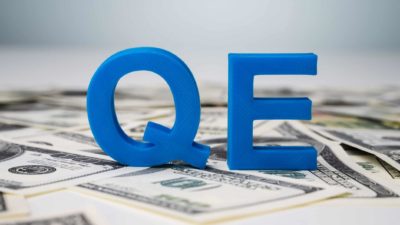Which ASX shares are the safest on the S&P/ASX 200 Index (ASX: XJO)?
Well, it's a fraught question. What do we really mean by 'safe'? For most investors, a 'safe' share is one that won't lose its value under any market conditions. And on this front, it's almost impossible to call any ASX share 'safe'. See, the share market is a volatile place. In theory, it should always be pricing every asset according to its true and intrinsic market value. But the problem is that markets don't put much store in theory. In reality, emotional investing (either fear or greed) is the predominant force in moving shares on a day to day basis. Legendary investor Benjamin Graham once said that the stock market is a 'voting machine in the short-term, and a weighing machine in the long-term', or words to that effect.
So it's almost impossible to find a share that never loses its value at any point in time. A cash-based exchange-traded fund like the iShares Core Cash ETF (ASX: BILL) is probably your best bet. But that's not too different to just having your money in a bank account anyway.
So what's your next best option? A seasoned investor might point you to ASX blue chip shares like Woolworths Group Ltd (ASX: WOW) or Wesfarmers Ltd (ASX: WES). Or even the ASX banks, because they're 'safe as banks' right? Well, try telling that to anyone who was a shareholder in Westpac Banking Corp (ASX: WBC), which saw its value crater by more than 50% between September 2019 and March 2020.
ASX blue chips are no safer than any other ASX 200 share in a market crash. What really matters is the durability of a business' cash flow. If a company has a robust and resilient revenue base, it's more likely (but not certain) to hold its market value over time.
What about inflation-safe ASX shares?
But perhaps market volatility is not the only thing that troubles some investors. The more pessimistic market participants amongst us have another fear: inflation. With governments around the world spending an unprecedented amount of cash to combat the coronavirus crisis, there are sections of the investing community that believe this will eventually lead to massive inflation – the loss of a currency's purchasing power through increased supply.
Figuring out which ASX shares are best placed to survive a world of high inflation depends on a few factors. Firstly, does the company have sufficient pricing power to be able to increase its revenues at least in line with the rate of inflation? Those companies that dominate their markets usually have the most power in this regard and are more equipped to deal with a high-inflation world. Think Apple with its iPhones, or the A2 Milk Company Ltd (ASX: A2M) with its premium dairy products.
Secondly, does the company have real, tangible assets it can use to support its cash flow? Transurban Group (ASX: TCL) for example, owns and operates a series of toll roads. No matter what is happening with inflation, Transurban is always going to have a portfolio of assets that consumers want (or even need) to use. This gives Transurban a massive advantage in a world of high inflation. It's a similar story with Sydney Airport Holdings Pty Ltd (ASX: SYD) or AGL Energy Limited (ASX: AGL). If you're worried about future inflation, these kinds of companies are a good place to start looking for a 'safer' investment, in my view.
Foolish takeaway
There's really no such thing as a 'safe' share or investment on the share market. If you have specific worries around inflation or any other kind of economic calamity, there are steps you can take to position your ASX portfolio accordingly. But investing in shares is never going to be a game of gains with no risk of losses. If you really can't deal with the fact your portfolio's value will fluctuate, then I would recommend periodically investing in exchange-traded funds (ETFs) without ever looking at your portfolio's value. The only other option is leaving your cash in the bank, I'm afraid.







